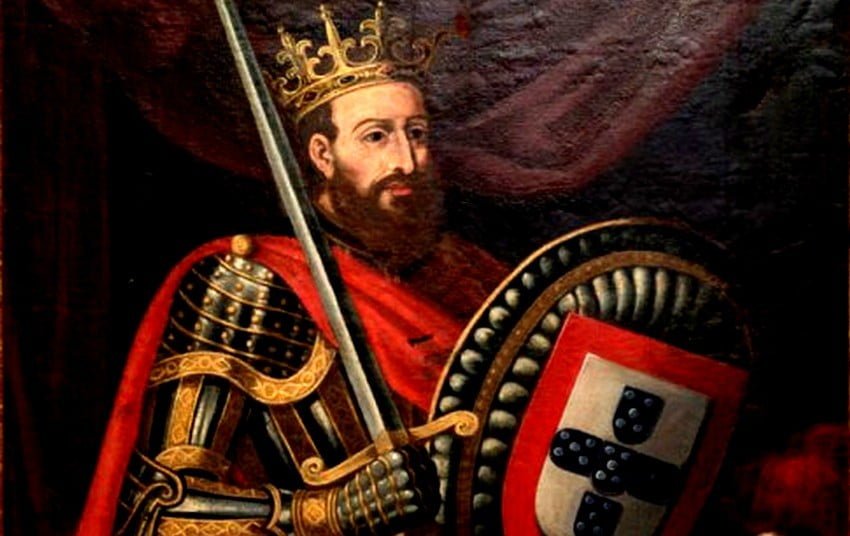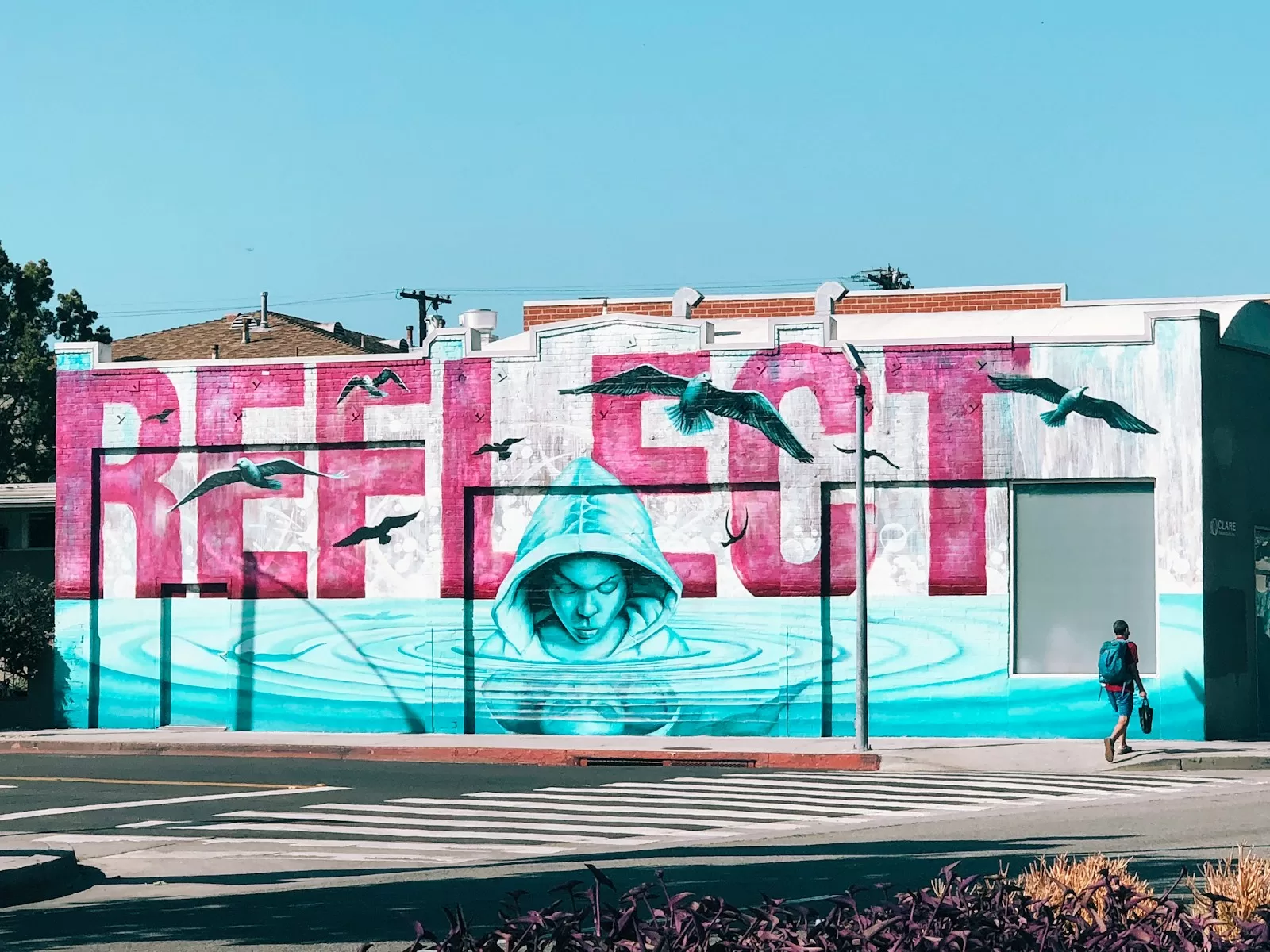King Afonso II of Portugal, also known as Afonso the Fat or the Thick, was the King of Portugal from 1211 until he died in 1223. He was the third king of Portugal, son of Sancho I, and his wife, Dulce of Aragon. King Afonso II expanded Portugal’s territory by conquering various regions, including the Algarve, and strengthening its economy through trade and commerce. He is also known for patronizing the arts, particularly poetry, and literature. Afonso II was a highly cultured and educated monarch who promoted learning and scholarship and established the University of Coimbra in 1290. Overall, Afonso II was a visionary ruler who helped to elevate Portugal into a significant power in medieval Europe.
Afonso’s reign had a significant conflict with the papacy and the nobility. He was excommunicated by Pope Honorius III in 1219 for his attempts to reduce the power of the Church within the country. He also faced opposition from the nobility, who were unhappy with his attempts to centralize control.
Despite these challenges, King Afonso II made some significant achievements during his reign. He continued the Reconquista, the Christian reconquest of the Iberian Peninsula from the Moors. He also established the first set of Portuguese written laws. These were mainly concerned with private property, civil justice, and minting.
Afonso II died in Coimbra in 1223. His son, Sancho II, succeeded him.
Here are some of the critical events of King Afonso II’s reign:
- 1211: Afonso II becomes King of Portugal.
- 1219: Afonso II excommunicatation by Pope Honorius III.
- 1220: Afonso II marries Urraca of Castile.
- 1223: Afonso II dies, and succession by his son, Sancho II, occurs.
King Afonso II was a complex and controversial figure. He was a capable ruler who made some significant achievements but was also autocratic and clashed with the papacy and the nobility. Historians still debate his legacy. This article delves into the life and reign of this remarkable monarch, providing a glimpse into his era of power and influence.

Early Life and Ascension
Afonso II’s birthright granted him a noble upbringing with an exceptional education. Raised with a deep understanding of governance and leadership, he possessed the necessary qualities to ascend to the throne. However, his journey to kingship was fraught with challenges and complex circumstances that shaped his character and prepared him for the responsibilities that awaited.
In his formative years, he resided within the royal court and undoubtedly received a sophisticated and cultured upbringing. As he grew older, Afonso II began to take on more responsibilities within the monarchy, eventually ascending to the throne in 1211. He expanded Portugal’s territory and promoted learning and scholarship during his reign, establishing the University of Coimbra in 1290.
Political Landscape During Afonso II’s Reign
To understand King Afonso II’s reign completely, it is crucial to grasp the political landscape in Portugal at that time. This section provides:
- An Overview of the prevailing political dynamics
- Examining the power struggles
- Alliances
- Rivalries that influenced the trajectory of the kingdom under his rule
King Afonso II’s Vision for Portugal
Afonso II had a clear vision for Portugal. This section delves into the aspirations and goals that drove his actions as a monarch. By analyzing his strategic decisions and policies, we gain insight into his determination to shape the kingdom’s destiny and secure its position among other European powers.
Afonso II’s vision for Portugal was to expand its territory and promote learning and scholarship. He established the University of Coimbra in 1290, a testament to his commitment to education and intellectual pursuits. Additionally, he worked to strengthen the monarchy and ensure its stability, which helped to establish Portugal as a powerful and influential nation in Europe. Overall, Afonso II’s legacy as a monarch was one of progress and growth for his country and its people.
Military Campaigns and Expansion
Afonso II’s military prowess and conquests played a significant role in defining his reign. This section highlights his notable military campaigns and the territories he acquired through astute strategies and skilled leadership. By exploring the significance of these conquests, we gain a deeper understanding of the geopolitical landscape of the time.
Afonso II, the King of Portugal, led several notable military campaigns. These campaigns were instrumental in expanding the kingdom’s territory and solidifying its position as a regional power. Here are some of the major military campaigns for which Afonso II was responsible:
Military Campaigns
- Reconquista in the Algarve: Alfonso II played a crucial role in the Reconquista, the Christian reconquest of the Iberian Peninsula from the Moors. He led successful military campaigns in the Algarve region, reclaiming territories from Muslim control and integrating them into the growing Portuguese kingdom.
- Conquest of Santarém: Alfonso II orchestrated the win of Santarém, a strategic city in central Portugal. The capture of Santarém further extended the reach of the Portuguese kingdom and solidified its control over vital trade routes.
- Siege of Lisbon: Alfonso II led a prolonged and strategic siege of Lisbon, a significant Muslim stronghold in Portugal. The siege lasted for several years and culminated in the fall of Lisbon to Portuguese forces. This victory was a turning point in the Reconquista and marked the complete liberation of the city from Moorish rule.
- Expansion into the Alentejo: Alfonso II expanded Portuguese influence into the Alentejo region through military campaigns and diplomatic maneuvers. This expansion consolidated Portuguese control over a vast area of southern Portugal and strengthened the kingdom’s territorial holdings.
- Conflict with León: Alfonso II faced disputes with the Kingdom of León, a neighboring Christian kingdom. These clashes were primarily territorial disputes and power struggles, as both domains sought to expand their influence. Alfonso II successfully defended Portuguese interests and secured key territories during these conflicts.
It is important to note that while these military campaigns were significant achievements, they were not the sole factors contributing to King Afonso II’s legacy. His vision for Portugal extended beyond military conquests and encompassed cultural patronage, religious reforms, and advancements in governance and education.
Cultural and Architectural Patronage
Beyond his military achievements, Afonso II was also a renowned patron of the arts and culture. This section explores his fervent support for artistic endeavors and patronage of major architectural projects. By examining the impact of his cultural investments, we uncover the rich tapestry of creativity that flourished under his reign.
Afonso II’s rule had a significant cultural impact on Portugal. As a patron of the arts and culture, he fostered an environment that celebrated intellectual pursuits, architectural advancements, and artistic expression. Here are some critical aspects of the cultural impact of Afonso II’s rule:
- Architectural Patronage: Alfonso II was known for patronizing prominent architectural projects. Under his rule, remarkable structures showcased the architectural styles and techniques of the time. These buildings included churches, monasteries, castles, and palaces, which served functional purposes and embodied the grandeur and luxury associated with the monarchy.
- Promotion of Education and Scholarship: Alfonso II actively promoted education and scholarly pursuits. His patronage of learning institutions and support for scholars fostered an environment conducive to intellectual growth and innovation. Therefore, this led to various advancements in mathematics, astronomy, philosophy, and literature. The King’s emphasis on education laid the foundation for a more enlightened society and a flourishing intellectual culture.
Cultural Exchange
- Cultural Exchange and Influence: Afonso II’s reign coincided with increased cultural exchange and interaction with other European regions. Therefore, this facilitated introduction of new ideas, artistic styles, and intellectual movements in Portugal. The court of Afonso II became a hub of cultural activity, attracting artists, writers, and thinkers from different parts of Europe. The resulting cross-pollination of ideas enriched Portuguese culture and contributed to its cosmopolitan character.
- Patronage of the Arts: Afonso II’s support for the arts led to the flourishing of artistic expression during his reign. Artists, sculptors, and artisans received royal patronage, enabling them to create masterpieces that adorned palaces, churches, and public spaces. The King’s appreciation for aesthetics and his demand for artistic excellence fostered an environment where creativity thrived.
- Cultural Preservation and Documentation: Afonso II recognized the importance of preserving cultural heritage and historical records. He fought to save ancient manuscripts and chronicles so future generations could benefit from past knowledge. This commitment to cultural preservation helped maintain Portugal’s rich history and traditions.
- Courtly Culture and Etiquette: The royal court under Afonso II’s rule was renowned for its refinement and elegance. The King set the standards for courtly behavior and etiquette, influencing the social norms of the nobility and the upper classes. This courtly culture had a trickle-down effect on the broader society, shaping social interactions, manners, and the aristocratic lifestyle.
Afonso II’s Impact on Portugal
The cultural impact made by King Afonso II was significant and long-lasting, continuing to shape future generations beyond his reign. His support for the arts, education, and cultural exchange laid the groundwork for Portugal’s future contributions to literature, exploration, and intellectual pursuits. His reign remains an essential chapter in the cultural tapestry of Portuguese history.
Religious Policies and Influence
Afonso II’s relationship with the Church and approach to religious matters profoundly impacted his rule. This section delves into the dynamics between the monarch and the ecclesiastical institution, shedding light on the religious reforms he initiated and the extent of religious influence during his reign.
Contributions to Maritime Exploration
Afonso II was a visionary supporter of maritime exploration. This section explores his pivotal role in advancing navigation and supporting expeditions that expanded Portugal’s reach across the seas. By examining the advancements made under his patronage, we gain insight into his contributions to the Age of Discovery.
DURING HIS REIGN, Afonso II, King of Portugal, made notable contributions to maritime exploration. While his focus was primarily on consolidating and expanding Portuguese territory, his support for maritime endeavors laid the foundation for Portugal’s future achievements in exploration. Here are some critical aspects of Afonso II’s impact on naval exploration:
Notable Missions
- Sponsorship of Naval Expeditions: Afonso II actively supported naval expeditions, providing the necessary resources and encouragement for maritime exploration. These expeditions aimed to discover new trade routes, expand Portuguese influence, and gather valuable geographical and navigational knowledge.
- Advancements in Navigation: Afonso II recognized the importance of navigation in maritime exploration. He supported the development of navigational instruments and techniques, which played a crucial role in expanding the horizons of Portuguese sailors. These advancements included improved astrolabes, quadrant instruments, and nautical charts, enabling more accurate positioning and safer navigation.
- Mapping and Charting: Under Afonso II’s patronage, Portuguese cartographers made significant progress in mapping and charting previously uncharted regions. These efforts led to the creation more accurate and detailed maps, providing valuable information for future explorers. The knowledge gained from these cartographic endeavors laid the groundwork for subsequent expeditions.
Trade Expansion
- Expansion of Trade Networks: Afonso II’s military campaigns and territorial expansions directly impacted Portugal’s trade networks. As Portuguese influence grew, so did the opportunities for trade and commerce. The development of trade routes, facilitated by the King’s policies, provided the economic impetus for future maritime exploration and incentivized sailors to seek new routes and markets.
- Paving the Way for Henry the Navigator: King Afonso II’s support for maritime exploration and his emphasis on navigation laid the foundation for the achievements of his successor, Prince Henry the Navigator. Henry built upon the groundwork laid by Afonso II and spearheaded Portugal’s “Age of Discovery,” which saw significant advancements in exploration, cartography, and the establishment of trade routes.
It is important to note that while Afonso II’s impact on maritime exploration was significant in laying the groundwork, the pinnacle of Portuguese exploration and discovery occurred during the subsequent reigns of Henry the Navigator and his successors. However, Afonso II’s support and patronage of maritime endeavors played a crucial role in setting the stage for Portugal’s future achievements in exploration and establishing its position as a maritime powerhouse.
Intellectual and Scholarly Pursuits
A flourishing of intellectual and scholarly pursuits marked Afonso II’s reign. This section highlights his dedication to promoting education and scholarship, fostering an environment that attracted notable scholars and facilitated advancements in various fields. We delve into the significant contributions made during his reign and their enduring impact.
The Court of Afonso II
Under Afonso II’s reign, the royal court was a center of power and influence. This section offers a glimpse into the court’s inner workings, exploring the key figures and their roles in shaping the King’s decisions. By understanding the dynamics of the court, we gain insight into the broader mechanisms of governance during that era.
Relations with Other Kingdoms and Empires
Afonso II’s diplomatic endeavors were crucial in shaping Portugal’s relations with other kingdoms and empires. This section examines his efforts to forge alliances, negotiate treaties, and navigate the intricate web of international politics. By exploring the interactions between Alfonso II and neighboring realms, we gain a comprehensive view of his diplomatic prowess.
The Legacy of Afonso II
Evaluating the lasting impact of Afonso II’s reign is essential to understanding Portuguese history. This section analyzes his rule’s historical significance and contributions to the kingdom. By examining his legacy, we recognize his profound influence on subsequent generations and the nation’s trajectory.
Afonso II in Literature and Art
Afonso II’s influence extended beyond his time, inspiring artists and writers to immortalize him in their works. This section explores his portrayal in literature, paintings, and other mediums. By examining the various representations of Alfonso II, we gain insights into the perception of his reign and the cultural significance attached to his legacy.
Remembering Afonso II: Monuments and Memorials
Monuments and memorials dedicated to Afonso II are tangible reminders of his reign. This section delves into the significance of these commemorative structures and explores efforts to preserve his memory. By visiting these landmarks, we pay homage to the enduring impact of this remarkable King.
Several statues dedicated to Afonso II, the King of Portugal, can be found in various locations. These statues are tangible reminders of his reign and contributions to Portuguese history. Here are some notable figures of Afonso II:
Statues Locations
- Coimbra, Portugal: In the city of Coimbra, Portugal, there is an impressive statue of King Afonso II. Depending upon the situation, the figure is in a public square or a park. It is a tribute to the King’s significant impact on the development of Coimbra University and the progress of the city’s culture and intellect.
- Santarém, Portugal: Santarém, a historically significant city, is home to a statue commemorating Afonso II. The figure may be situated in a central plaza or a place of historical importance, symbolizing the King’s conquest of the city and his contributions to its development.
- Lisbon, Portugal: As the capital of Portugal, Lisbon may feature a statue of Afonso II in a prominent location, such as a public square or a historic district. The statue might depict the King in regal attire, emphasizing his role in the city’s history and the reconquest of Lisbon from Moorish rule.
- Monuments and Historical Sites: Creating monuments or historical sites in honor of Afonso II’s reign is necessary for preserving his legacy. These could include castle ruins, fortifications, landmarks that signify his military campaigns, or architectural patronage. Such sites often have plaques or inscriptions that mention the King and his achievements.
It is important to note that the specific statues and their locations may vary, as the presence and prominence of these monuments can change over time due to restoration projects, urban development, or shifting cultural priorities. When visiting the cities above or exploring historical sites in Portugal, one can inquire locally or consult tourist information centers to locate and learn more about the statues and monuments dedicated to Alfonso II.
Afonso II’s Successors and the Kingdom’s Fate
The legacy of Afonso II to his successors, who faced unique challenges in maintaining the kingdom’s prosperity. This section examines the trajectory of Portugal after his rule, analyzing the choices made by subsequent monarchs and the resulting impact on the nation’s destiny.
After Afonso II’s reign, Portugal experienced a transition of power and underwent significant changes. Here is an overview of the fate of Portugal following Afonso II’s departure from the throne:
Notable Legacies after Afonso II’s Reign
- Succession: Upon Alfonso II’s death in 1223, his son Sancho II succeeded him as the King of Portugal. However, Sancho II’s reign was fraught with internal conflicts, power struggles, and challenges to his authority. His controversial rule eventually led to his dethronement in 1248, as his nobles and the Church favored his brother, Afonso III.
- Consolidation of Power: Afonso III, also known as Afonso Henriques, assumed the throne in 1248 and embarked on a mission to consolidate and strengthen Portuguese territory. His reign was marked by military campaigns and the reconquest of several territories from Christian and Moorish forces, expanding the kingdom’s influence and establishing stability.
Territorial Expanision
- Territorial Expansion: Portugal witnessed significant territorial gains under Afonso III’s rule. The kingdom continued its efforts to expand southward, reclaiming territories from the Moors, such as the Algarve region. During his rule, Portugal achieved a successful reconquest which resulted in the establishment of modern-day borders.
- Political Stability: Afonso III implemented administrative reforms and centralized the government, establishing a more stable political structure. His rule laid the foundation for developing a centralized monarchy, strengthening the royal authority and reducing the power of regional nobles.
- Maritime Exploration: While Alfonso II had shown support for maritime exploration, during the reigns of Afonso III’s successors, especially Prince Henry the Navigator, Portugal achieved remarkable advancements in naval exploration. Prince Henry’s expeditions and the subsequent “Age of Discovery” brought Portugal immense wealth, overseas territories, and prestige.
- Golden Age: The reign of Afonso III’s grandson, King Dinis, is often called Portugal’s Golden Age. King Dinis implemented various reforms, including the establishment of a national legal code, the promotion of education, and the encouragement of arts and culture. His reign saw economic prosperity and cultural development, laying the groundwork for Portugal’s future accomplishments.
After Afonso II’s reign, Portugal experienced political stability, territorial expansion, and cultural growth. The subsequent rulers continued the work begun by Afonso II, solidifying Portugal’s position as a significant European power and laying the foundation for the country’s future successes in exploration, trade, and cultural achievement.
Debates and Controversies
Like any historical figure, Afonso II’s reign has sparked debates and controversies among historians. This section explores different interpretations and perspectives on his rule, shedding light on the complexities and nuances of his legacy. By engaging in these debates, we deepen our understanding of the multifaceted nature of history.
Commemorations and Celebrations of Afonso II
Events and commemorations dedicated to Afonso II keep his memory alive. This section explores the annual celebrations, cultural festivals, and other homages paid to this extraordinary King. Participating in these commemorations contributes to the collective remembrance of a significant figure in Portuguese history.
Afonso II’s reign must be celebrated more in Portugal, as he is a significant historical figure. There are currently no specific national or widespread celebrations dedicated solely to him, which is a considerable oversight in recognizing his contributions to the country’s history. However, certain events and festivals in Portugal may indirectly acknowledge aspects of Alfonso II’s legacy or historical context. Here are a few celebrations and cultural events in Portugal that may have connections to Alfonso II:
Celebrations Involving Afonso II
- Historical Reenactments: Reenactments or festivities in certain historical towns and cities occasionally showcase Portugal’s medieval past. These events could include displays of medieval weaponry, costumes, music, and dance, allowing visitors to immerse themselves in the ambiance of Afonso II’s era.
- Medieval Fairs and Festivals: Portugal hosts medieval-themed fairs and festivals throughout the year, particularly in towns with a rich historical background. These events celebrate the country’s medieval heritage, featuring jousting tournaments, traditional music, artisanal crafts, and culinary delights reminiscent of Afonso II’s time.
- City Festivals: Some cities in Portugal, such as Coimbra or Lisbon, hold annual festivals that celebrate their local history and cultural heritage. While not directly related to Afonso II, these festivals often include historical parades, concerts, exhibitions, and other cultural activities that provide a broader understanding of Portuguese history, including the medieval period.
- Commemorative Events: On certain occasions, academic or historical organizations might hold lectures, seminars, or exhibitions focusing on specific aspects of Alfonso II’s reign or the medieval period in Portugal. These events offer scholars, historians, and enthusiasts opportunities to delve deeper into studying and appreciating Alfonso II’s contributions.
While Portugal may not have dedicated celebrations solely for Afonso II, the country’s rich historical and cultural heritage offers numerous avenues to explore the medieval era and the broader context in which Afonso II played a role. These celebrations and events provide a glimpse into the historical tapestry of Portugal and its remarkable past.
Atypical Last Words
To sum up, it is clear that King Afonso II’s reign in Portugal was defined by his unwavering determination and significant impact. By highlighting his notable accomplishments and assessing his lasting influence, we pay tribute to this exceptional leader and ensure his legacy will inspire future generations.
Subscribe
Are you an avid traveler seeking inspiration for your next adventure? Look no further than the Atypical Vagabonds newsletter. By subscribing to our newsletter, you gain access to a treasure trove of travel tips, destination guides, and captivating stories from around the globe. Our expertise in exploring off-the-beaten-path destinations. We offer a refreshing perspective on travel, encouraging you to embrace the unconventional and discover unique experiences. Join the community today and let our wanderlust-inducing content inspire you. Therefore, you can embark on extraordinary journeys. Subscribe to receive their latest updates directly in your inbox and never miss a travel adventure again.
Donations
Love what you’re seeing on Atypical Vagabond? Help us keep the adventures coming! Consider donating through PayPal’s secure payment system. Every contribution goes a long way in fueling our mission to bring you more thrilling content and unforgettable experiences. Join us in shaping the future of travel—donate today!




[…] the annals of history, there are those whose names resonate with the spirit of adventure and discovery as Vasco da Gama. He ventured into the unknown and left an indelible mark on the […]
[…] you found the history of the Portuguese monarchy interesting, check out the other articles on Portuguese history I’ve […]
[…] Time Capsule: Immerse yourself in a specific era, exploring sites, museums, and […]